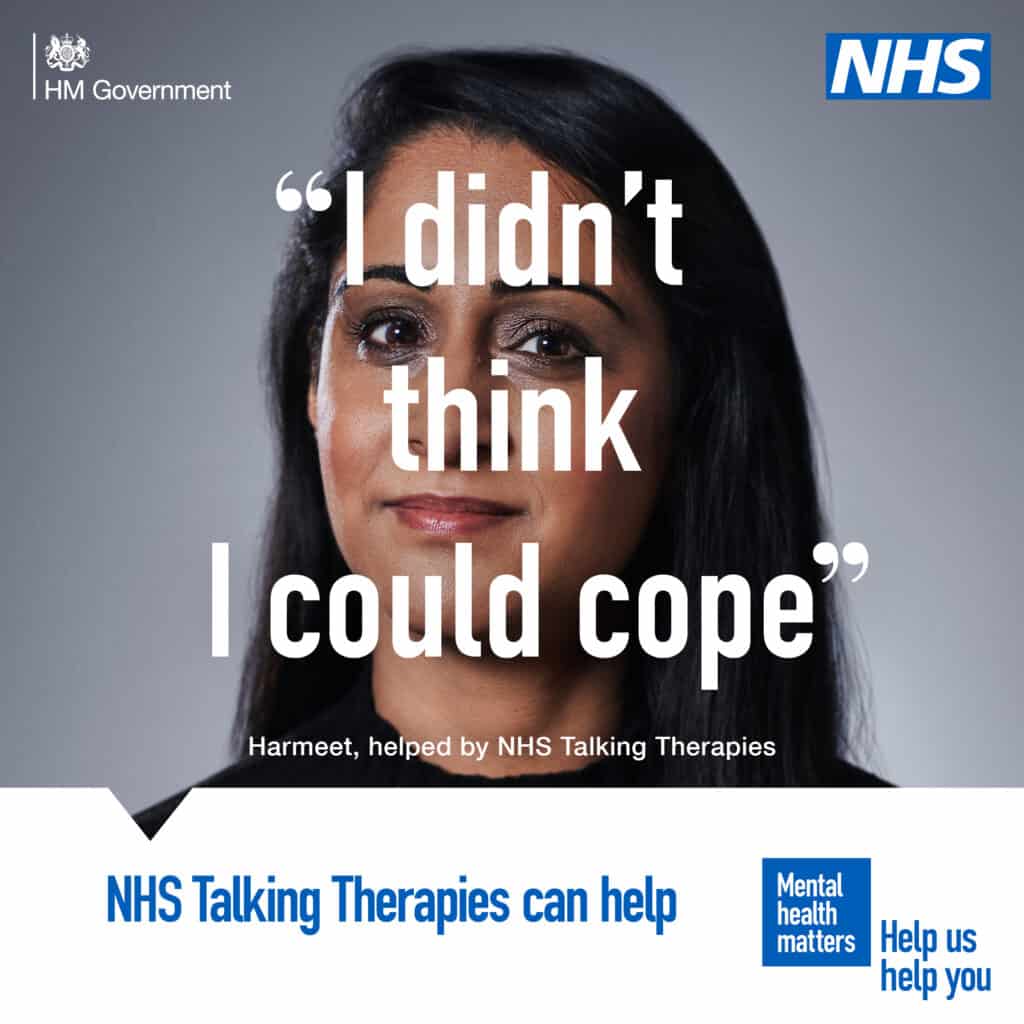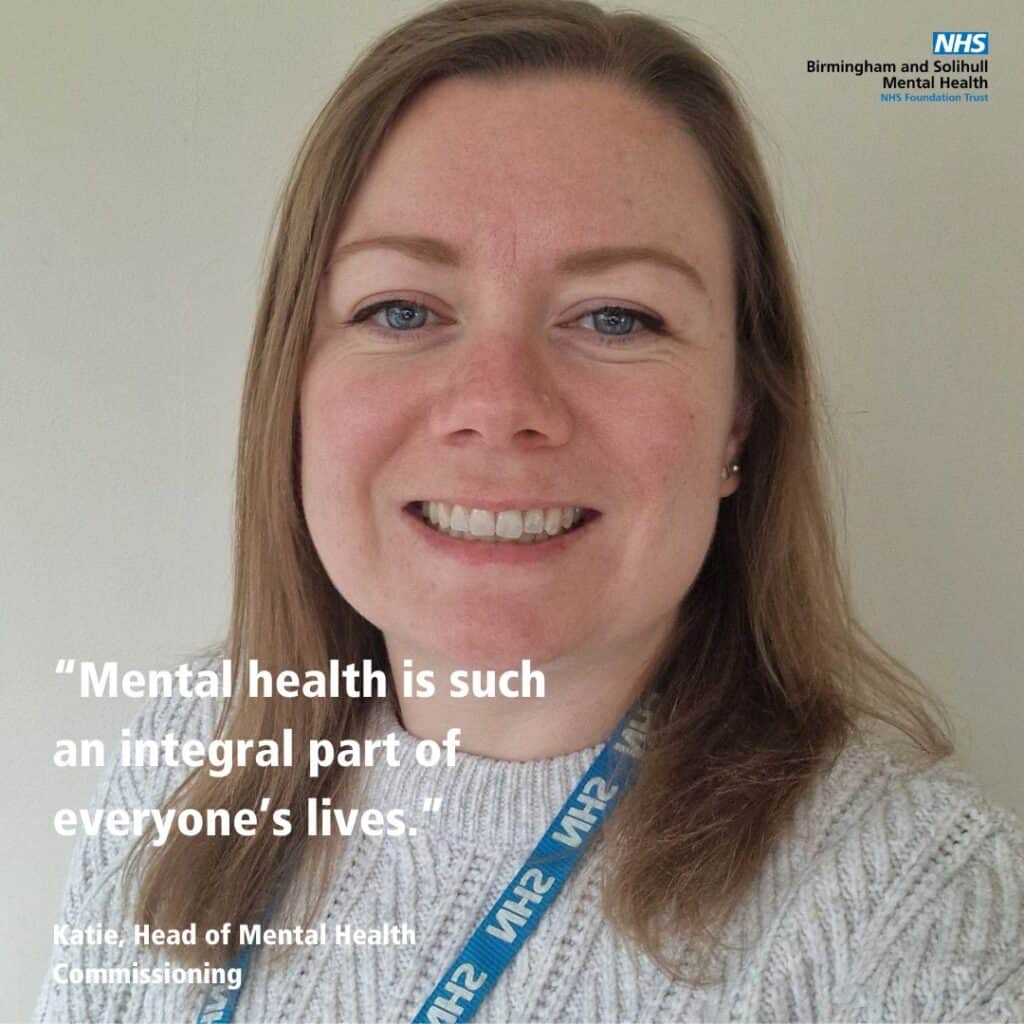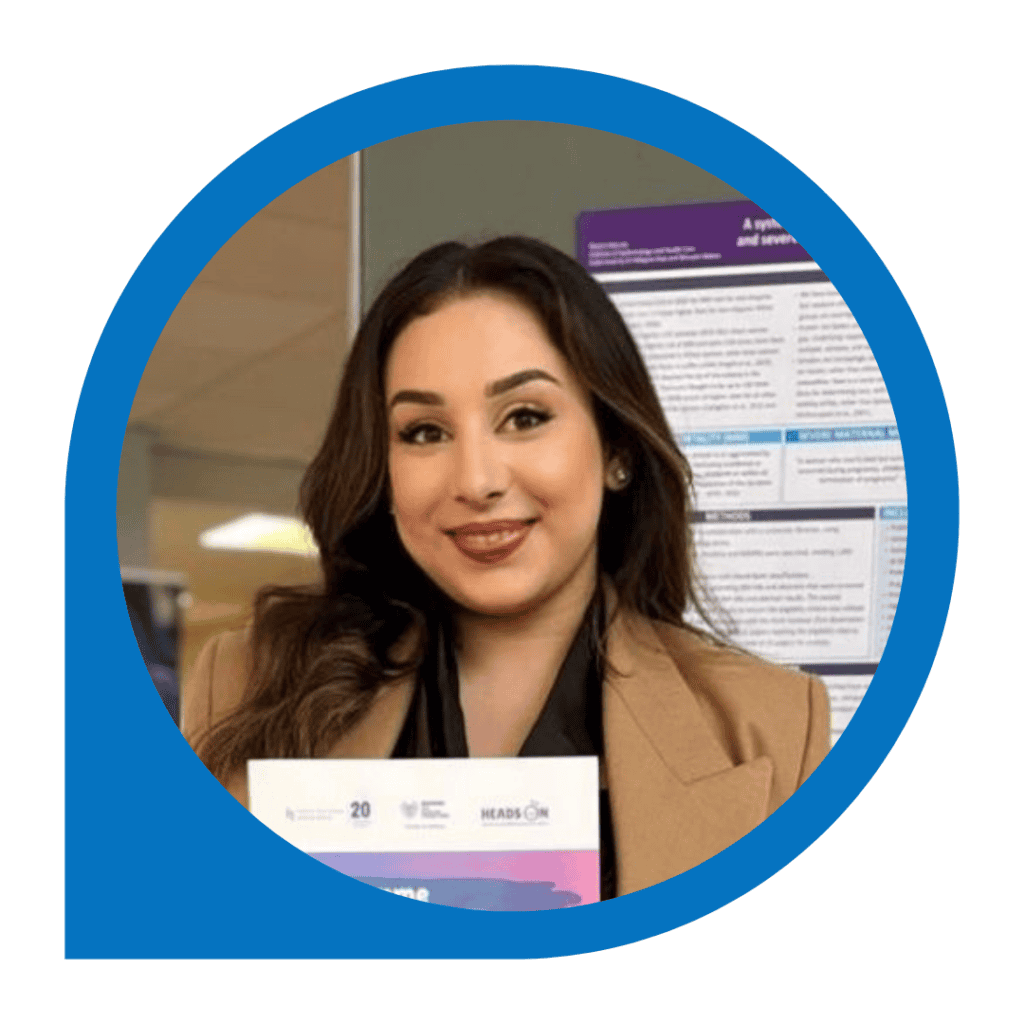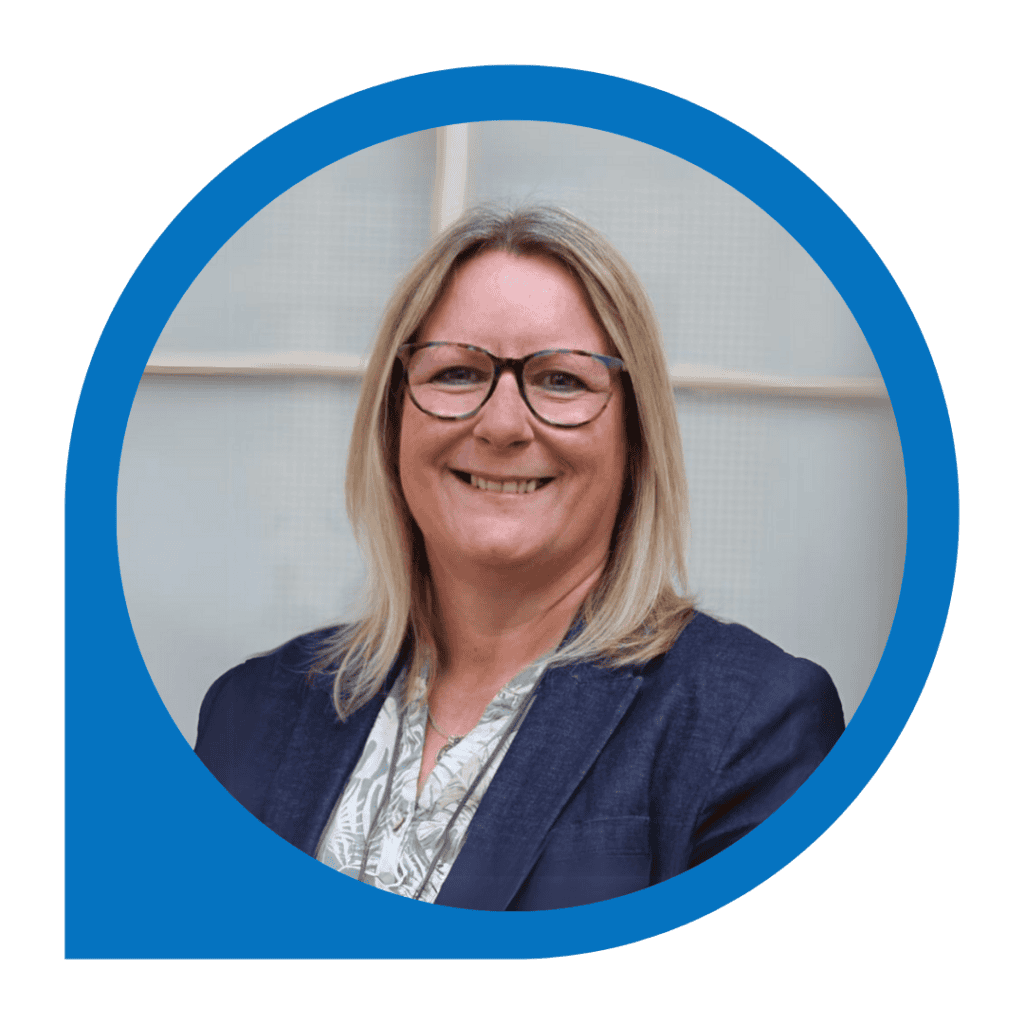Katie Holmes, Head of Mental Health Commissioning, is the latest feature in our popular segment, Five Minutes With.
Mental health is such an integral part of everyone’s lives and I’ve come to truly appreciate how important it is to provide the right support at the right time, as close to home as possible.”
April is Stress Awareness Month, so we’ve decided this month’s Five Minutes With should be about NHS Talking Therapies and Katie Holmes’ role within the service.
NHS talking therapies can help if you’ve not been feeling yourself lately and are finding it hard to cope. Your GP can refer you or you can self-refer. If you are in Birmingham call 0121 301 2525 or visit nhs.uk/talk
We can read more about Katie and Talking Therapies below.
Hi Katie, please could you explain more about your role at BSMHFT and how this impacts Birmingham and Solihull residents?

“I’m the Head of Mental Health Commissioning in the Mental Health, Learning Disabilities and Autism Provider Collaborative. This Collaborative was set up nearly two years ago to manage the commissioning of mental health, learning disability and autism services for Birmingham and Solihull. Before this role, I led NHS Talking Therapies in our team.
“My job is to ensure mental health services are high-quality and efficient. The Collaborative works with both NHS and community providers to make sure they deliver the right support for local people while following national guidelines.
“A great example is NHS Talking Therapies. In Birmingham and Solihull, four organisations provide these services. While they all follow the NHS guidance, there were differences in how they operated. My role has been to help these providers meet the same national standards, ensuring consistent, high-quality support for everyone regardless of their postcode. This work positively impacts Birmingham and Solihull residents by ensuring consistent, accessible and community-focused mental health support tailored to their diverse needs.”
What are some of the common misconceptions people have about Talking Therapies?
“I’ve heard several misconceptions about NHS Talking Therapies services that can sometimes discourage people from seeking the support they need. Here are some common ones:
- It’s only for severe mental health issues: Many believe these services are only for those with serious conditions, but it’s the exact opposite – Talking Therapies are there for people who are just starting to notice they are feeling low or struggling with issues such as stress, anxiety or depression. There are two levels of treatment, one of which offers brief interventions called ‘guided self-help’ which is all about learning skills quickly to stop things getting worse. The second is a longer, more intensive treatment, meeting weekly with your therapist. The level of treatment you receive will depend on how much your symptoms are impacting on you, how long you have had them for and will be decided at an assessment appointment when you first contact the team. The aim is to offer the least intensive form of treatment which is as easy as possible to access.
- Therapy is just for talking or venting: NHS Talking Therapies provide structured, evidence-based treatments like Cognitive Behavioural Therapy (CBT), rather than just offering a space to talk. It’s all about working out why you feel like you do and once you have that understanding, using a set of tools to overcome the difficulties.

- It’s not confidential: Some worry that others will find out they are accessing mental health support, but strict NHS confidentiality standards are followed.
- Therapists give direct advice: Therapists don’t tell you what to do; instead, they guide you to explore your thoughts and give you a set of tools to do things differently and develop your own solutions.
- It involves medication: NHS Talking Therapies focus on psychological interventions and do not prescribe medication. You and your GP may decide it’s the right option to take medication alongside treatment, but it is not necessary.
- You’ll be judged for seeking help: Therapy is a proactive step toward better mental health and therapists provide a safe, non-judgmental space.
- The waiting times are very long: Whilst there have been long waiting times in the past, all of our teams have worked very hard to see people as soon as possible. You will be offered an initial appointment within four weeks of making a referral and start treatment within three months, often within a few weeks.”
What are the kinds of things Talking Therapies help with?
“NHS Talking Therapies support people with a wide range of mental health challenges. Some of the main problems they help with include:
- Anxiety disorders: General anxiety, social anxiety, phobias and panic attacks
- Depression: Mild to moderate depression or low mood
- Stress management: Support with coping mechanisms for overwhelming stress
- Obsessive-Compulsive Disorder (OCD): Helping individuals manage intrusive thoughts and repetitive behaviours
- Post-Traumatic Stress Disorder (PTSD): Providing structured therapy for trauma recovery
- Health anxiety: Support for individuals who excessively worry about their health
- Sleep issues: Addressing insomnia or poor sleep patterns
- Specific challenges: Such as work-related stress or issues with self-esteem and confidence.
“These services use evidence-based treatments like Cognitive Behavioural Therapy (CBT), counselling and other structured approaches to help individuals manage these challenges and improve their mental well-being. People can be referred by their GP or get in touch directly and the teams will be happy to have a conversation about what is going on and talk through the different treatment options.
“If someone is experiencing symptoms of more severe mental illness (for example, bipolar or schizophrenia), they should visit their GP who can make a referral to other mental health services.
“If you feel like you are experiencing a mental health crisis or are at risk of harming yourself or someone else, call 111 and press option 2. You will get straight through to a mental health professional.”
Has there ever been a stand-out moment in your career that has made you pause and reflect?
“A moment which stands out for me has to be NHS Talking Therapies services adapting to covid. Working in the NHS can sometimes seem like things will always be done as they have been and nothing will change quickly. But when covid hit and lockdowns were introduced there was such a willingness and openness to change things overnight to keep services running. I’ve tried to keep that spirit with me since then, looking for the positives and the differences we can make if we take a chance and operate services in innovative ways which fit with how service users want to access them.”
What are you most passionate about?
“In both my personal life and my professional career, I hold fairness and equality as core principles that guide my actions and decisions. I believe that everyone deserves to be treated with respect, to have their voice heard and to have opportunities to thrive. This means that when I’m faced with challenging situations, I strive to ensure that my choices reflect these values, even if the decisions are difficult or unpopular. As long as I can approach each situation with integrity, balancing compassion with pragmatism and keeping the greater good at the forefront, I can find peace of mind knowing I’ve done my best.
“For example, at work, we often have to make tough decisions about which services will continue and sadly sometimes which will end. We work as a commissioning team to make sure different voices are included in the decision process and that there is clear rationale for any changes which rely on a variety of sources of information.”
Why did you decide to pursue a career in mental health specifically?
“I have to admit, my journey into mental health wasn’t a planned one—it was more about being in the right place at the right time. But over the years, my passion for it has grown immensely. I chose to study psychology at university because I found it fascinating to learn about why people behave the way they do. While I was studying, the government launched the Improving Access to Psychological Therapies programme (now NHS Talking Therapies), which created a wave of new opportunities to train as a therapist. It felt like the perfect chance to work directly with people, make a difference in their lives and gain a valuable qualification at the same time.

“Now, with over 15 years of experience in mental health services, I’m so glad I took that leap. Mental health is such an integral part of everyone’s lives and I’ve come to truly appreciate how important it is to provide the right support at the right time, as close to home as possible. Without these services, the ripple effects can be far-reaching. Helping people when they need it most is not just a job—it’s a commitment I’m proud to be part of.”
What do you do to improve your mental health and wellbeing?
“I have found it really important to make time for myself, my hobbies and to eat healthily. I started running (well jogging, I’m very slow!) about two years ago and hated every second, but now I notice a dip in my mood if I don’t do some exercise at least a couple of times a week. I have two daughters and I also find deliberately spending quality time with them, rather than just being in the same place, improves my sense of wellbeing.”

Past, present or future, what three people would you most want to sit down for a meal with?
“Taylor Swift – my friends will all tell you how much I like Taylor’s music and have fully indoctrinated my children! I’d love to talk to her about her values and views on politics after hearing about some of the ways she has apparently used her money for good causes. I think there’s a lot more to her than the music.
“Helen Sharman – I found out about Helen from one of my daughter’s reading books. She was the first British person and first Western European woman in space and I’d love to hear about her experiences.
“Elizabeth Day – Elizabeth is a writer, author and podcaster and I really enjoy her podcast “How to Fail” which is all about learning from mistakes and seeing them as an opportunity. I’d love to hear about the stories her guests have told her when they weren’t being recorded!”
Tell us something that people might not know about you

“I’ve completed a sky-dive.”
Describe yourself in three words
“I phoned a friend on this one, and she says: “compassionate, funny and smart” which I’m happy with!”
Published: 3 April 2025








